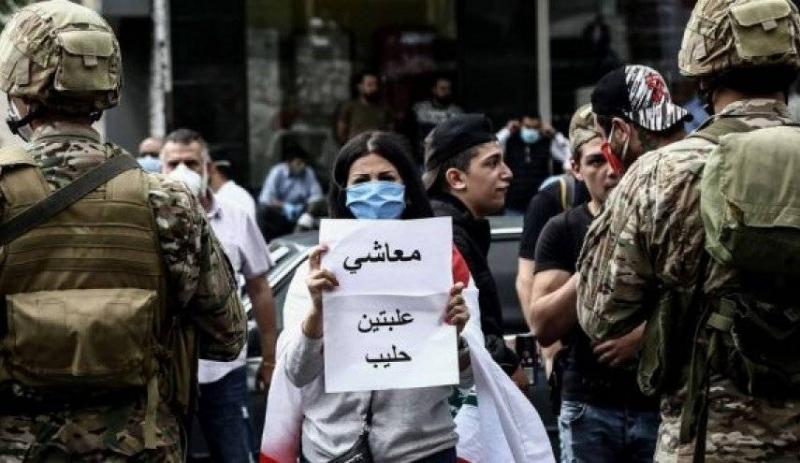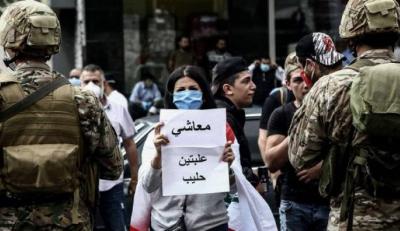The UN Special Rapporteur on extreme poverty and human rights, Olivier De Schutter, stated in a report that "the destructive actions of political and financial leaders in Lebanon are responsible for pushing most of the country's population into poverty, in violation of international human rights law."
A statement from the UN Information Center in Beirut noted that "the mission's report on Lebanon follows a fact-finding and investigation into the root causes and implications of the worst economic and financial crisis the country has ever faced."
De Schutter said, "Impunity, corruption, and structural inequality have become embedded in a corrupted political and economic system designed to fail those at the bottom; this should not be the case."
He pointed out that "the political establishment has been aware of the looming catastrophe for years but has done little to avert it. Even well-connected individuals have transferred their funds abroad, thanks to the legal void that allowed capital to flow out of the country. Truth and accountability must be pursued through the lens of human rights."
With parliamentary elections scheduled for May 15, the UN expert urged the upcoming government to place accountability and transparency at the heart of its operations, starting with the public disclosure of its financial resources and conflict of interest, and demanding that central bank officials do the same.
He noted that "the man-made economic crisis in Lebanon began in 2019, and today the country stands on the brink of collapse," citing current estimates that four out of five people live in poverty.
De Schutter explained that "political ties to the banking system are prevalent, raising serious concerns about conflicts of interest in their dealings with the economy and people's savings."
He stated, "There is no accountability embedded in the latest rescue plan, which is essential for restoring the lost trust of the population and the financial sector. We are talking about national wealth belonging to the people of Lebanon, squandered over decades of mismanagement and misplaced investments by the government and the central bank. Central bank policies, in particular, have led to a downward spiral of the currency, destroyed the economy, wiped out lifelong savings, and plunged the population into the depths of poverty. My report found that the central bank has put the Lebanese state in clear violation of international human rights law."
He added, "The political leadership is entirely out of touch, including the despair it has created by destroying people's lives. Lebanon is also one of the most unequal countries in the world, but the leadership seems, at best, unaware of this and, at worst, complacent."
He emphasized that "there is a serious lack of robust social protection mechanisms," stating, "In the current situation, it is a system that protects the wealthy while leaving poor families to fend for themselves. Public services, including electricity, education, and healthcare, have been destroyed, with the state heavily supporting the private sector in providing these services. More than a quarter of public education spending goes to the private sector, exacerbating inequality, not leading to better education, and resulting in high dropout rates among children from poor families."
He added, "More than half of families reported that their children had to skip meals, and hundreds of thousands of children are out of school. If the situation does not improve immediately, an entire generation of children will be sacrificed."
The UN expert criticized "decades of underinvestment in the public healthcare system and the shameful partial abolition of government subsidies for essential medications." He stated, "Medications are still in acute shortage, and prices for chronic illness medications have risen at least fourfold, which is a near-certain death sentence for those in desperate need of them."
The statement noted that "despite the rarity of official poverty data— which the government does not systematically gather, partly due to a lack of census since 1932—estimates indicate that multidimensional poverty nearly doubled between 2019 and 2021, affecting 82 percent of the population last year."
It was mentioned that "the UN report found that Palestinian and Syrian refugees face catastrophic living conditions in Lebanon, with 88 percent of them living in substandard living conditions. Nearly half of Syrian families suffer from food insecurity. The plight of refugees is a direct result of the administrative and legal measures imposed by the state, which continue to marginalize them and blame them for its failure to provide basic goods and services to the population, whether it be education, decent jobs, safe drinking water, or electricity."
De Schutter stated, "If we want to restore trust in a better future, the government must bolster central oversight, free the National Anti-Corruption Commission from potential political interference, ensure independent oversight of Electricité du Liban, and embed accountability and transparency in the recovery plan."
He called on "the upcoming government to commit to improving its human rights record across all areas by reducing inequality, combating corruption and impunity, building strong and resilient social protection, educational, and healthcare systems, and placing the public interest above personal gain."




